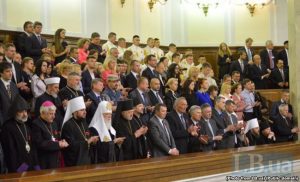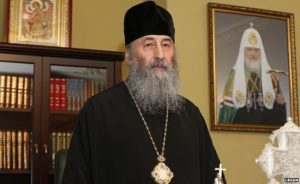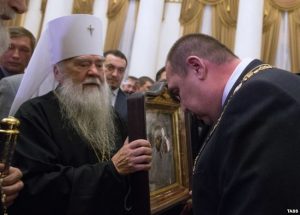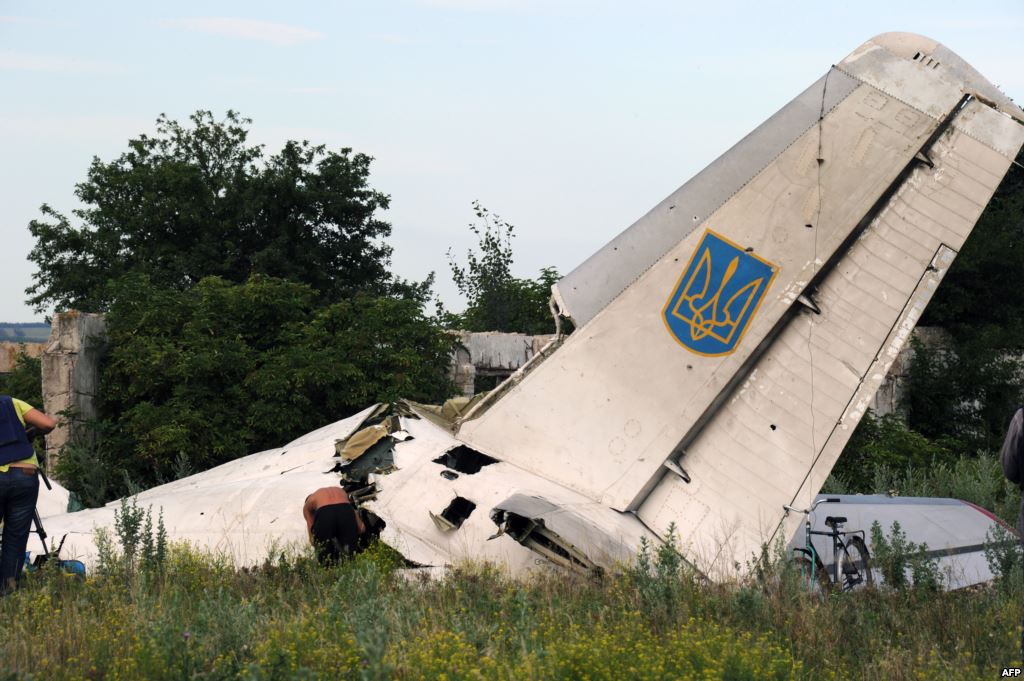
Similar acts committed by clerics of the UOC-MP – in fact a branch of the Russian Orthodox Church – have long been the norm in Ukraine. Referring to Church Canons, they refuse to conduct marriages or hear the confessions of persons they refer to as “rozkolnyky” (schismatics). There have also been cases when these priests have shown a negative attitude towards conducting burial services or prayers for Ukrainian soldiers who were killed in Eastern Ukraine.

Church Canons or “canonically correct”
It’s generally useless to try to discuss Church Canons with representatives of the Moscow Patriarchate. Was it “canonically correct”, for example, that Jonah became the Metropolitan of Kyiv in 1448, and did not even reside in Kyiv, but in Moscow? Moreover, he was also the first Metropolitan in Moscow to be appointed without the approval of the Ecumenical Patriarch of Constantinople as had been the norm. This signaled the beginning of the de facto independence (autocephaly) of the Moscow part of the Russian Church.
Let’s push it further… How canonical was the creation of the Moscow Patriarchate in 1589? How canonical was the subordination of the Orthodox Church in Ukraine to Moscow in 1686? How canonical was the abolition of the Patriarchate in Russia by Peter the Great and the establishment of a Synodal Church here in Ukraine? And finally, how canonical was the “restoration” of the Moscow Patriarchate in the USSR in 1943, officially sanctioned by Joseph Stalin?
Let’s look at some recent examples. Was it canonical to hold the Kharkiv Council of the UOC-MP in 1992 and elect Volodymyr Sabodan Metropolitan of Kyiv, who, in fact, did not even attend the council?
The history of the Russian Orthodox Church shows that Orthodox Church Canons are systematically ignored and violated. This also affects its branch – the Ukrainian Orthodox Church, which is subordinated to the Moscow Patriarchate. Nevertheless, the clerics of these churches regularly point to their canonical correctness. They maintain that they are the “only recognized” church, and that theirs is the one true faith. Unfortunately, many people fall for such cheap propaganda. In fact, the canonical correctness of the Moscow Patriarchate is situational. When necessary, a certain canon is remembered. When another situation arises, it’s conveniently forgotten. Sometimes, Church Canons are interpreted arbitrarily by UOC-MP clerics, who lack both general and theological education. Just listen to the language used in sermons and speeches by its current Primate, Metropolitan Onufriy (Berezovsky) and you’ll come to your own conclusions.

In fact, what is the actual stature of Bishop Luka of Zaporizhzhia and Melitopol, a priest who refused to pray for and bury an innocent child? This priest, who spoke loudly against celebrating Orthodox Christmas on December 25, travelled abroad to take part in Xmas celebrations in Hungary. People who have an understanding of Church Canons find it strange to read the cynical justifications of Father Luka’s actions by official UOC-MP structures, in particular the Zaporizhzhia diocese. In fact, the latter is one of the greatest propagandists of the “Russian world” in Ukraine, so it’s not at all surprising that such a tragic affair arose in its midst.
In principle, it’s clear why low-educated clerics are placed in high hierarchical positions in Ukraine by the Moscow Patriarchate… it makes them so much easier to manage and manipulate, and they will obey all orders, without giving them too much thought.
Will the authorities have enough political will to resolve the Orthodox issue?
It’s not necessary to dwell on the fact that the UOC-MP is not only a church but also a political institution that carries out the Kremlin’s orders and conducts a destructive policy in Ukraine. This is clearly evident in the attitude of the UOC-MP to the war in Eastern Ukraine.

Like the Kremlin, UOC-MP leaders maintain that this is not Russian aggression, but a civil war. For many years, the UOC-MP has encouraged dissension and caused separation within the Ukrainian Church, cultivating hatred for the “schismatics”, especially supporters of the UOC-KP (Ukrainian Orthodox Church-Kyiv Patriarchate). This rift has even led to conflicts and enmity within families. Some radical supporters of the “canonical” UOC-MP urge believers to refuse vaccinations, identification codes, etc. The question is whether such things are actually prescribed in Church Canons…
The UOC-MP has become a major issue in Ukrainian society. However, this situation was largely implemented by the Ukrainian authorities and the tacit approval of the Ukrainian community as a whole. In fact, it’s only with the support of the state and relevant authorities that the number of communities, monasteries, and other institutions of the UOC-MP have grown and flourished throughout Ukraine! After all, weren’t government authorities responsible for registering these structures without any questions raised? Didn’t they close their eyes to certain unlawful activities? Didn’t they give them land, and even money? This was especially true during the presidency of Leonid Kuchma and Viktor Yanukovych. After all, we all know that certain well-known businessmen continue to attend services at UOC-MP churches and give generous contributions to “canonical” UOC-MP priests.
It’s high time for our government to think about resolving the Orthodox issue in Ukraine. The very presence of a foreign church entity on Ukrainian soil needs to be responsibly reviewed by government authorities. This is of particular importance when that church entity, the Moscow Patriarchate, actively supports terrorism, refuses to bury Ukrainian soldiers killed on the frontlines, and agitates the faithful to hate a legitimately elected Ukrainian president and parliament.
Unfortunately, there’s is no sign of any activity, achievement, or even a clear plan. Of course, ideally, a single Ukrainian independent Orthodox church should be created, but that’s just a pipe dream. However, we could start by putting the clergy of the UOC-MP in its place by using specific legal mechanisms. This is a realistic plan… What is required is the political will to engage in resolving these issues.








